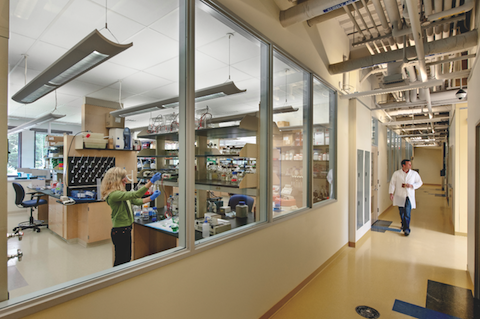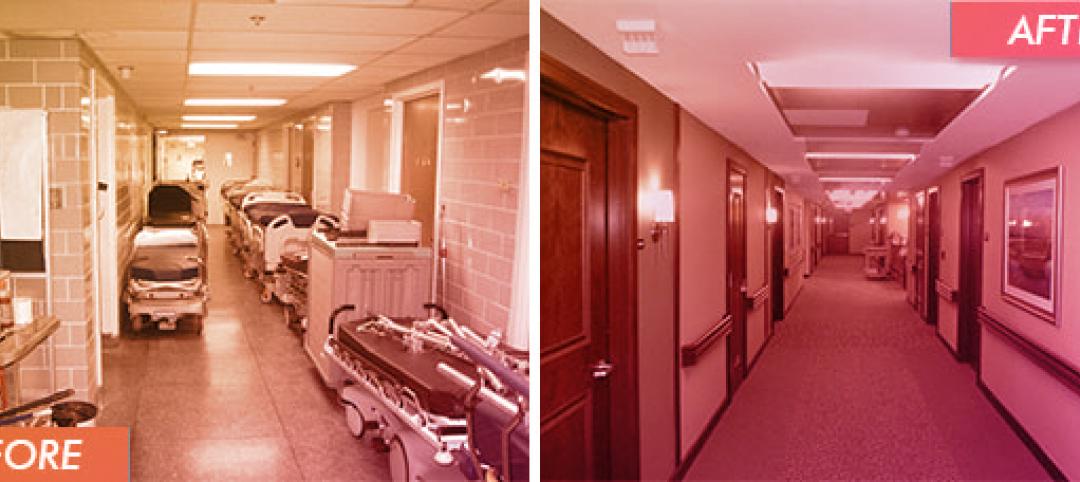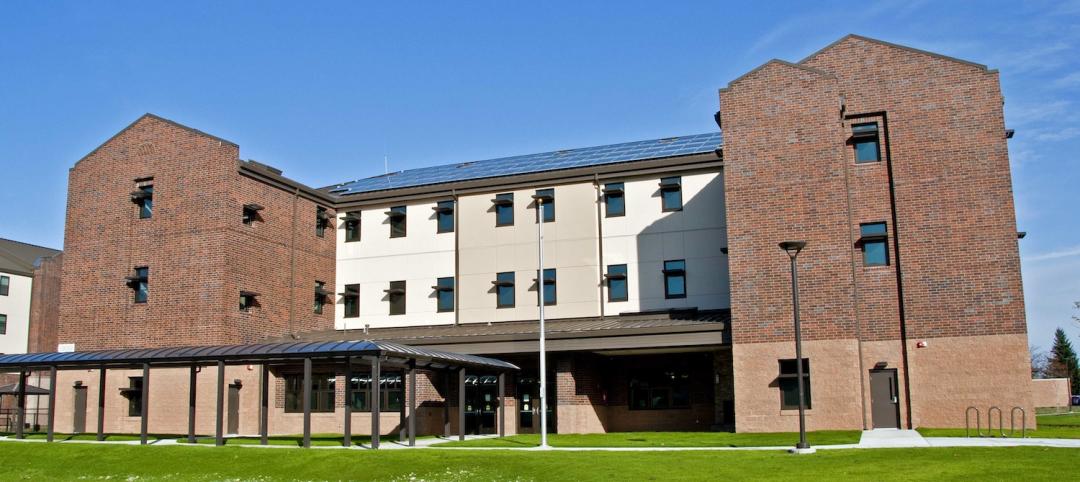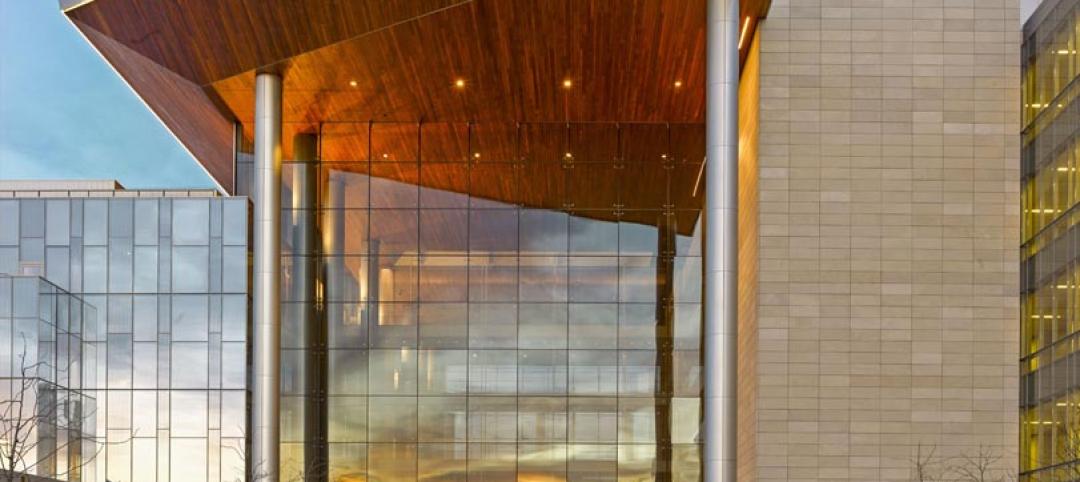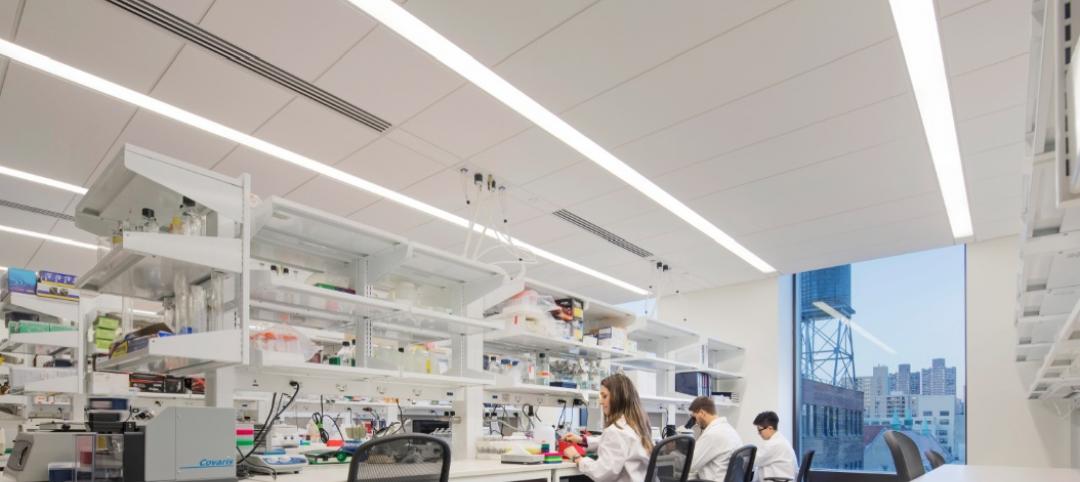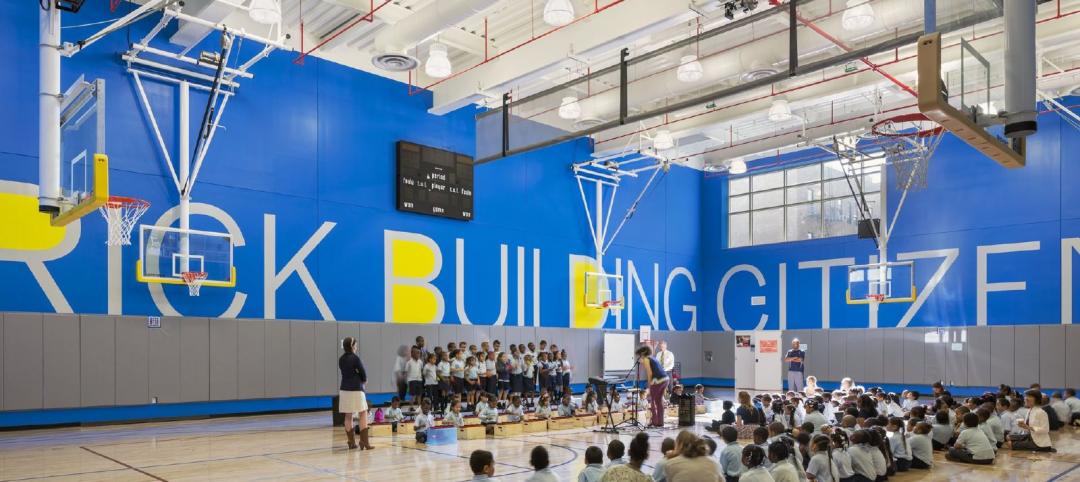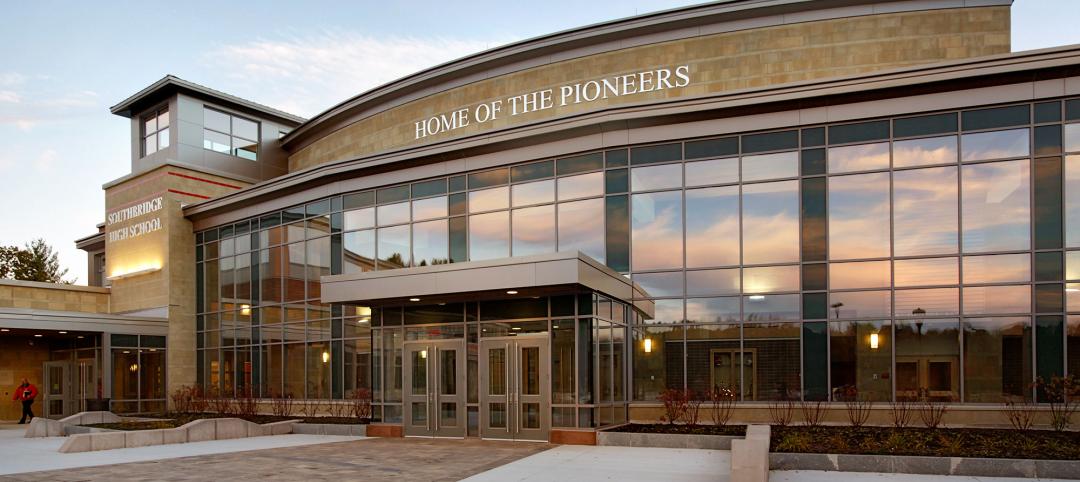Administrators at the University of Connecticut Health Center in Farmington didn’t think much of the 1970s building they planned to turn into the school’s Cell and Genome Sciences Building. It’s not that the former toxicology research facility was in such terrible shape, but the 117,800-sf structure had almost no windows and its interior was dark and chopped up.
Enter the Building Team of Goody Clancy (architect) and FIP Construction (GC), who worked with the university to create an open, bright, and sustainable home (targeting LEED Silver) for three major research programs: UConn Stem Cell Institute, the R.D. Berlin Center for Cell Analysis and Modeling, and the Department of Genetics and Developmental Biology.
But how to get daylight deep into the lab spaces? Fortunately, the one-story framework allowed light to be brought in from above. The Building Team ran a 464-foot-long skylight the length of the main corridor, and clerestory windows were installed above the “Crossroads,” a central gathering and eating space that features a newly raised roof.
Additional daylighting comes from 56 new windows installed in exterior walls—not an easy task, given the building’s concrete panel construction. The team calculated the maximum window size allowable without compromising the panels and then standardized all windows to that size. Louvered sunshades were added above each of these.
Interior walls were also punched through with window openings to further distribute daylight. Leaving interior walls largely in place also kept construction costs down, to $259/sf (inclusive of site work). Also helping the budget: refurbishing and reconfiguring existing metal casework in research labs, which were extensively upgraded to modern research and safety standards, and finishing the new 100-seat auditorium in wood paneling left over from another campus project.
The facility’s wetlands site was carefully reconfigured to accommodate extra parking, and a bioretention pond was added to control runoff and keep stormwater out of the town’s sewer system. Also, because the existing building lacked a recognizable “front door,” a proper front entrance was added.
“It’s very difficult to do these types of buildings, and this one was very well done,” said David Callan, SVP, Environmental Systems Design, Chicago. “Excellent job on a low budget.” BD+C
PROJECT SUMMARY
Building Team
Submitting firm: Goody Clancy (architect)
Owner/developer: University of Connecticut Health Center
CM: FIP Construction
Structural engineer: LeMessurier Consultants Inc.
M/E engineer: Cosentini Associates
Plumbing engineer: BVH Integrated Services
General Information
Size: 117,813 gsf
Construction cost: $30.53 million
Construction time: September 2008 to June 2010
Delivery method: CM at risk
Related Stories
| Sep 7, 2014
Hybrid healthcare: Revamping inefficient inpatient units to revenue-producing outpatient care
It's happening at community hospitals all over America: leadership teams are looking for ways to maintain margins by managing underutilized and non-revenue producing space. GS&P's David Magner explores nontraditional healthcare models.
| Sep 7, 2014
USGBC + American Chemistry Council: Unlikely partners in green building
In this new partnership, LEED will benefit from the materials expertise of ACC and its member companies. We believe this has the potential to be transformational, writes Skanska USA's President and CEO Michael McNally.
| Sep 7, 2014
Behind the scenes of integrated project delivery — successful tools and applications
The underlying variables and tools used to manage collaboration between teams is ultimately the driving for success with IPD, writes CBRE Healthcare's Megan Donham.
| Sep 7, 2014
Ranked: Top military sector AEC firms [2014 Giants 300 Report]
Balfour Beatty, Fluor, and HDR top BD+C's rankings of the nation's largest military sector design and construction firms, as reported in the 2014 Giants 300 Report.
| Sep 5, 2014
First Look: Zaha Hadid's Grace on Coronation towers in Australia
Zaha Hadid's latest project in Australia is a complex of three, tapered residential high-rises that have expansive grounds to provide the surrounding community unobstructed views and access to the town's waterfront.
| Sep 4, 2014
Ranked: Top courthouse sector AEC firms [2014 Giants 300 Report]
Fentress Architects, Tutor Perini, and AECOM top BD+C's rankings of design and construction firms with the most revenue from courthouse facilities, as reported in the 2014 Giants 300 Report.
| Sep 4, 2014
Hospital CEOs, architects sound off on state of healthcare design
Healthcare construction will continue to feel the effects of radical changes in the delivery of care, according to healthcare leaders attending the annual Summer Leadership Summit of the American College of Healthcare Architects and the AIA Academy of Architecture for Health.
| Sep 4, 2014
Best of education design: 11 projects win AIA CAE architecture awards [slideshow]
The CAE Design Excellence Award honors educational facilities that the jury believes should serve as an example of a superb place in which to learn. Projects range from a design school in Maryland to an elementary school in Washington.
Sponsored | | Sep 4, 2014
Learning by design: Steel curtain wall system blends two school campuses
In this the new facility, middle school and high school classroom wings flank either side of the auditorium and media center. A sleek, glass-and-steel curtain wall joins them together, creating an efficient, shared space. SPONSORED CONTENT
| Sep 4, 2014
Strong industry growth could be slowed by skilled labor shortage, says Gilbane report
While construction spending for 2014 will finish the year 5.5% higher than 2013 and the unemployment rate in construction is down to 7.5%, the industry has been losing workers for more than five years, according to a new Gilbane report.


